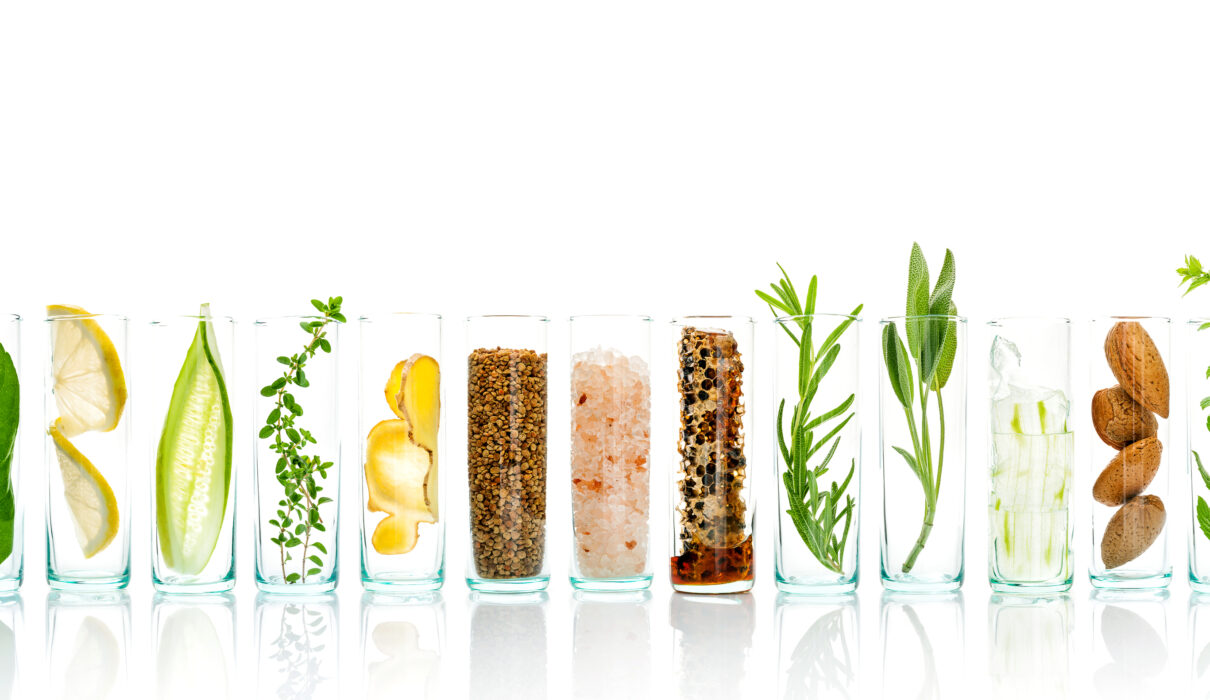Choosing the right skincare ingredients is essential for maintaining healthy, vibrant skin. The sheer number of skincare products on the market can be overwhelming, and understanding which ingredients are beneficial and which ones are to avoid is key to making informed decisions. At Dr. Face, a leading aesthetics clinic in Melbourne, our team of medical doctors specialises in aesthetic treatments that promote skin smoothing, firming, and overall aesthetic improvement. Here’s a breakdown of ingredients that can enhance your skincare routine, as well as those that might do more harm than good.
Beneficial Skincare Ingredients
- Hyaluronic Acid
Hyaluronic acid is a powerhouse ingredient known for its ability to retain moisture. Naturally present in the skin, it binds water molecules, keeping the skin hydrated and plump. This hydration can smooth out fine lines and enhance skin elasticity, making it ideal for those seeking a more youthful complexion. Look for serums or moisturisers containing hyaluronic acid to achieve a hydrated and firm skin appearance.
- Vitamin C (Ascorbic Acid)
Vitamin C is an antioxidant that protects the skin from free radicals, which can cause premature aging. It also brightens the skin tone, reduces hyperpigmentation, and stimulates collagen production. Choose a stable form of Vitamin C, such as L-ascorbic acid, to maximise its effectiveness. Using a Vitamin C serum in the morning can provide protection against environmental damage throughout the day.
- Retinoids (Retinal and Retinaldehyde)
Retinoids, derived from Vitamin A, are used for skin concerns such as wrinkles, fine lines, and sun damage. They accelerate cell turnover, which helps to unclog pores, even out skin tone, and promote the production of collagen. Start with a lower concentration and gradually increase usage to minimise potential irritation. Retinoids are best applied at night, as they can make the skin more sensitive to sunlight.
- Niacinamide (Vitamin B3)
Niacinamide is a versatile ingredient known for its anti-inflammatory and skin-soothing properties. It helps to reduce redness, control sebum production, and improve the skin barrier. It is particularly beneficial for those with sensitive or acne-prone skin. Niacinamide can be found in a variety of products, from serums to moisturisers, and is gentle enough for daily use.
- Peptides
Peptides are short chains of amino acids that act as building blocks for proteins like collagen and elastin. Incorporating peptides into your skincare routine can help support skin firmness and elasticity, reduce the appearance of fine lines, and enhance the skin’s barrier function. They are suitable for all skin types and can be found in serums, creams, and eye treatments.
Skincare Ingredients to Avoid
- Alcohol (Denatured or Ethanol)
While alcohol is often used in skincare formulations to help products absorb more quickly, it can be extremely drying and irritating, especially for sensitive skin. Prolonged use of alcohol-based products can strip the skin of its natural oils, leading to redness, flakiness, and increased sensitivity. Instead, Choose alcohol-free alternatives that prioritise gentle hydration and skin barrier protection.
- Fragrance and Perfumes
Fragrances are common in many skincare products, but they can cause allergic reactions, irritation, and sensitivity. Synthetic fragrances are especially problematic, as they can contain a range of undisclosed chemicals that may disrupt skin health. Always choose fragrance-free or naturally scented products to minimise the risk of irritation.
- Parabens (Methylparaben, Propylparaben, etc.)
Parabens are preservatives used to extend the shelf life of products, but they can penetrate the skin and potentially disrupt hormonal balance. Some studies suggest a link between parabens and certain health concerns, though more research is needed. To be safe, choose products labelled as “paraben-free” to avoid potential risks.
- Sulphates (Sodium Lauryl Sulphate or SLS, Sodium Laureth Sulphate or SLES)
Sulphates are detergents commonly found in cleansers and shampoos. While they are effective at removing dirt and oil, they can also strip away the skin’s natural moisture barrier, leading to dryness, irritation, and redness. For a gentler cleanse, look for sulphate-free options that preserve the skin’s moisture balance.
- Formaldehyde and Formaldehyde-Releasing Agents (Quaternium-15, DMDM Hydantoin)
Formaldehyde is a known carcinogen used in some skincare products as a preservative. It can cause skin irritation, allergic reactions, and more severe health risks with prolonged exposure. Look for products free from formaldehyde and its releasing agents to ensure the safety of your skincare regimen.
Prioritise Your Skin Health with Professional Guidance at Our Aesthetics Clinic in Melbourne
Choosing the right skincare ingredients is crucial for achieving and maintaining healthy skin. At Dr. Face, we understand that every individual’s skin is unique, which is why we offer personalised consultations to help you select the best ingredients and treatments for your skin type and concerns. Our expert team of medical doctors is dedicated to enhancing your skin’s health and beauty with safe and effective aesthetic treatments. By educating yourself on what ingredients to look for and which to avoid, you can take a proactive approach to skincare that promotes long-term skin health and radiance. Visit Dr. Face today to discover more about our skin smoothing and aesthetic treatments, and how we can help you achieve your skin goals. We also do out of office hours appointments at our aesthetics clinic in Melbourne!


